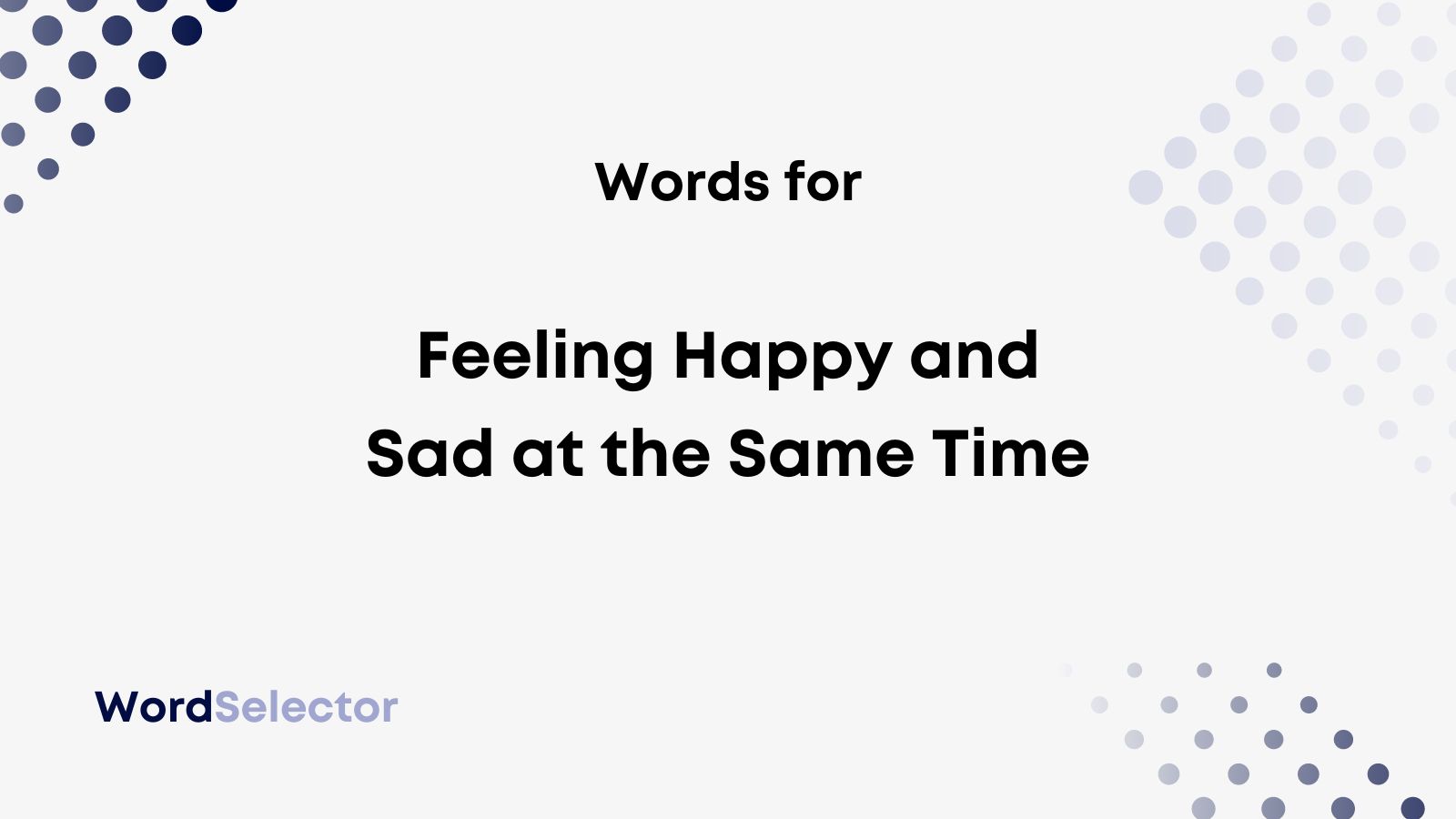As complicated human beings, we don’t always know how to describe the way we’re feeling. But is there a word for a simultaneous feeling of both happiness and sadness in English?
In this article, we’ll discuss our favorite words to describe this tricky sensation, so stick around!
Words for Feeling Happy and Sad at the Same Time
- Bittersweet
- Ambivalence
- Wistful
- Tragicomic
- Rueful
- Melancholy
- Saudade
- Mixed emotions
- Conflicted
- Reflective
KEY TAKEAWAYS
- You can use “bittersweet” to describe the feeling of joy and sadness combined.
- “Ambivalence” refers to the sensation of feeling two contradictory feelings simultaneously.
- If you are expressing remorse in a humorous manner, you are being “rueful.”
Before you go! We still need to discuss our three favorite words for feeling happy and sad at the same time, so stay tuned for the next section.
After that, we’ll look at a few examples using each of these words.
Bittersweet
“Bittersweet” is a good word to describe the dual sensation of sadness and happiness. It is an oxymoron, which is a figure of speech in which two conflicting ideas are placed together.
Merriam-Webster defines the term “bittersweet” as “pleasure accompanied by suffering or regret.” In other words, a “bittersweet” feeling is a feeling of pleasure that cannot be enjoyed without some simultaneous feelings of sadness or remorse.
It’s difficult to understand such a conflicting sensation until you’ve experienced it yourself. Therefore, let’s try to give context to this term using a couple of helpful example sentences:
He enjoyed his success, but the feeling was bittersweet; he often thought about the exploitation and suffering of those who had built his empire for him.
Attending Joel’s wedding was a very bittersweet experience for me, for I feel glad at his joy, but sorrow for the fact that I was not the one to bring it to him.
Ambivalence
Merriam-Webster defines “ambivalence” as “simultaneous and contradictory attitudes or feelings.”
As we all know, feelings are complicated! Moreover, people can often feel several different ways about a person or thing at the same time.
“Ambivalence” is the word for this sensation, so when you feel both sad and happy simultaneously, you may simply be feeling “ambivalent.”
Ambivalence is a very uncomfortable sensation since we’d all prefer to have clear and certain feelings about things. However, the more you think about a topic, the more you’ll probably find that you have ambivalent feelings about most things in life.
Thus, let’s see this term used in a couple of example sentences:
I feel a great deal of ambivalence about my line of work.
They both had a deep ambivalence about marriage before they met, but now they’re as happy as can be!
Rueful
When you’re unsure how to describe the sensation of feeling both regret and some mischievous humor, “rueful” is an interesting English word that encapsulates these mixed emotions.
The Google Dictionary defines “rueful” as “expressing sorrow or regret, especially in a wry or humorous way.”
You’ve probably heard the phrase “rueful smile,” which describes a person smiling even though they feel regret or sorrow.
Therefore, this word tends to refer to the combined emotions of feeling sorry for what you’ve done but also finding the whole situation rather funny or ironic.
Consider the examples below to see what we mean:
When Dan was caught with his sister’s chocolates, he gave her a rueful grin and returned them immediately.
Janine took a long, rueful breath before answering the question.

